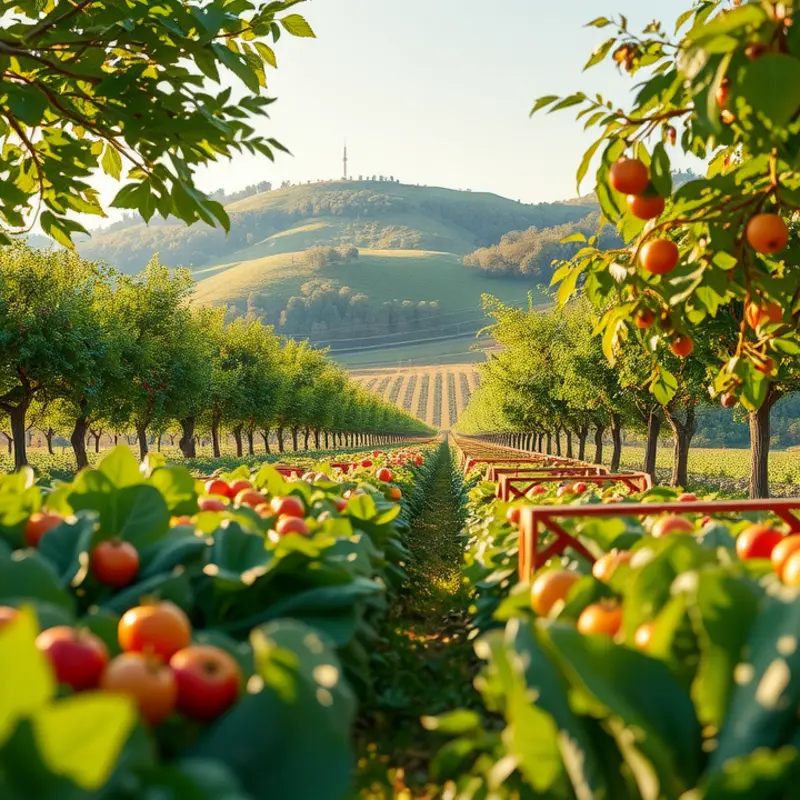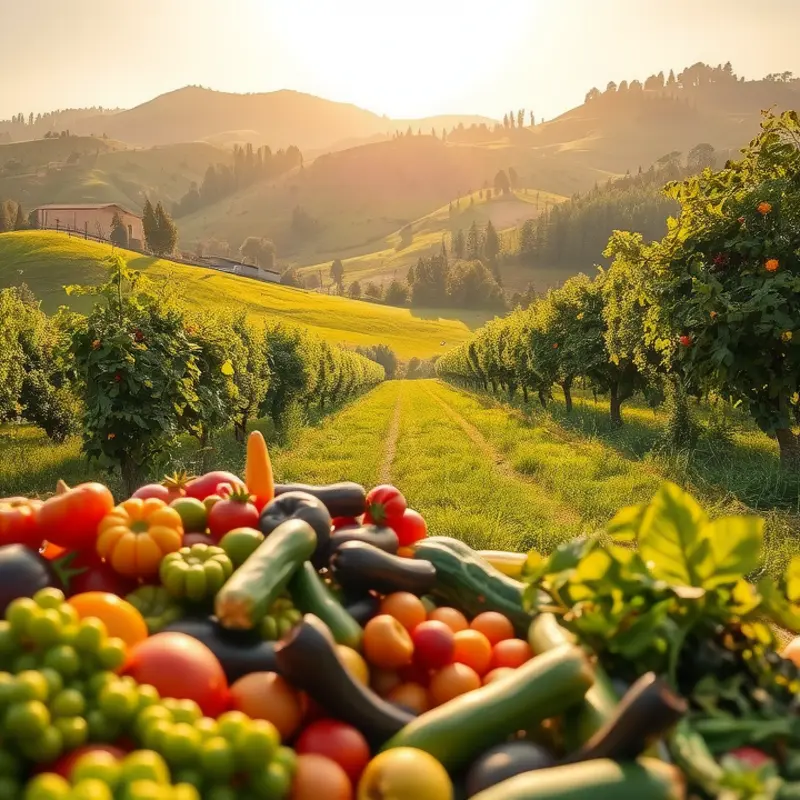Choosing eco-friendly food preparation methods not only benefits the planet but can also enhance your culinary experience. By incorporating sustainable practices in your kitchen, you can reduce waste, minimize energy consumption, and support local ecosystems. Embracing a greener lifestyle when cooking opens doors to fresh ingredients, conscientious choices, and a sense of community with like-minded individuals. Let’s explore practical tips to cultivate a more sustainable kitchen and indulge in the delightful process of eco-conscious cooking.
Embracing Local and Organic Ingredients

Incorporating local and organic ingredients into your meals isn’t just about following a culinary trend; it’s a step toward healthier eating and planet sustainability. By choosing locally sourced food, you are directly supporting farmers in your community, which can bolster local economies and create jobs. Additionally, produce that doesn’t travel far means fewer carbon emissions.
Furthermore, eating seasonally ties us back to nature’s cycles, providing fresher produce that often tastes better and is more nutritious. Seasonal food is harvested at its peak, preserving more vitamins and minerals.
One of the most effective ways to source these ingredients is through farmers’ markets. These markets are abundant with fresh produce, meats, and dairy. You can engage directly with the people growing your food, obtaining insights into their farming practices and ensuring they uphold sustainable methods. Don’t hesitate to ask them about pesticide use or farming practices.
Community-supported agriculture (CSA) programs offer another route to get the freshest, organic produce. By subscribing to a CSA, you receive a share of the farm’s harvest weekly. This not only ensures a steady supply of fresh, local produce but also helps farmers with upfront costs.
When choosing organic, the aim is to avoid synthetic pesticides and fertilizers, which can harm ecosystems and contribute to biodiversity loss. Organic farming methods often enrich soil health and use techniques like crop rotating and natural composting, which can increase nutrient profiles in produce.
To reduce reliance on processed foods, consider preparing more plant-based meals. These ingredients typically require fewer resources to produce than meats, contributing to lower greenhouse gas emissions. Look for hearty vegetables and legumes that not only satiate but also offer robust nutrition. They can be easily combined to create delicious meals without processed additives.
A shift to plant-based eating can be simple. Start by replacing one or two meals a week with plant-focused dishes. Incorporate more beans, lentils, and whole grains, which are versatile and filling. If you’re looking for practical tips on reducing kitchen waste while experimenting with plant-based meals, check out these low-waste cooking prep techniques.
It’s essential to consider not just what we eat, but how our food choices impact the world. Embracing local, organic, and plant-based ingredients can lead to more eco-friendly kitchen habits. By making these changes, you not only enhance the flavor and nutrition of your meals but also contribute positively to the environment and local community economies.
Smart Kitchen Practices for Sustainability

Incorporating smart kitchen practices can significantly reduce waste and enhance sustainability. Start by embracing meal planning. Draft a weekly menu to avoid unnecessary purchases that often end up as waste. A focused grocery list prevents over-buying and ensures you only buy what you need. For inspiration, explore minimal prep dinner ideas to simplify your planning.
Proper food storage is crucial to extending the life of your groceries. Invest in airtight containers to maintain freshness and prevent spoilage. Store produce in ways that preserve their natural state—keep potatoes and onions separate, for example, to prevent sprouting. A cool, dark place is ideal for root vegetables, while leafy greens thrive in a crisp refrigerator environment.
Efficient cooking methods also play a role in conserving energy. Use a lid when boiling water to reduce cooking time and energy consumption. Consider using a pressure cooker or a slow cooker, both of which require less energy than traditional stovetop methods.
Upcycling ingredients is both creative and environmentally friendly. Before discarding vegetable peels, consider their potential. Carrot tops can transform into a flavorful pesto, while citrus peels add zest to desserts and drinks. Embrace leftovers by repurposing them into new dishes. Leftover rice can become a flavorful stir-fry or a hearty soup base.
Eco-friendly utensils and sustainable tools further enhance a green kitchen. Opt for bamboo or stainless-steel options over plastic. Not only are these alternatives durable, but they also reduce long-term environmental impact.
Composting is a powerful method to manage food waste. Set up a compost bin to recycle food scraps into nutrient-rich soil, which can then feed your garden. This practice minimizes landfill contributions and enriches the earth.
Cleaning the kitchen sustainably is essential. Use natural cleaning agents, such as vinegar and baking soda, instead of chemical-laden products. These alternatives are not only safer for the environment but also gentle on your kitchen surfaces.
Embracing these smart kitchen practices can create a positive impact on the planet. By minimizing waste and maximizing efficiency, your kitchen becomes a hub of sustainability, supporting the goal of making delicious meals with care for the environment.
Final words
Incorporating eco-friendly practices into your food preparation routine is a rewarding journey toward sustainability. By choosing local and organic ingredients, you’re not only elevating the quality of your meals but also supporting agricultural systems that respect the environment. Additionally, adopting smart kitchen practices ensures that every meal is crafted with care, reducing waste and conserving resources along the way. Remember that even small changes can lead to significant impacts. Embrace the joy of cooking with a conscience, and inspire others to join this meaningful movement toward a healthier planet.








